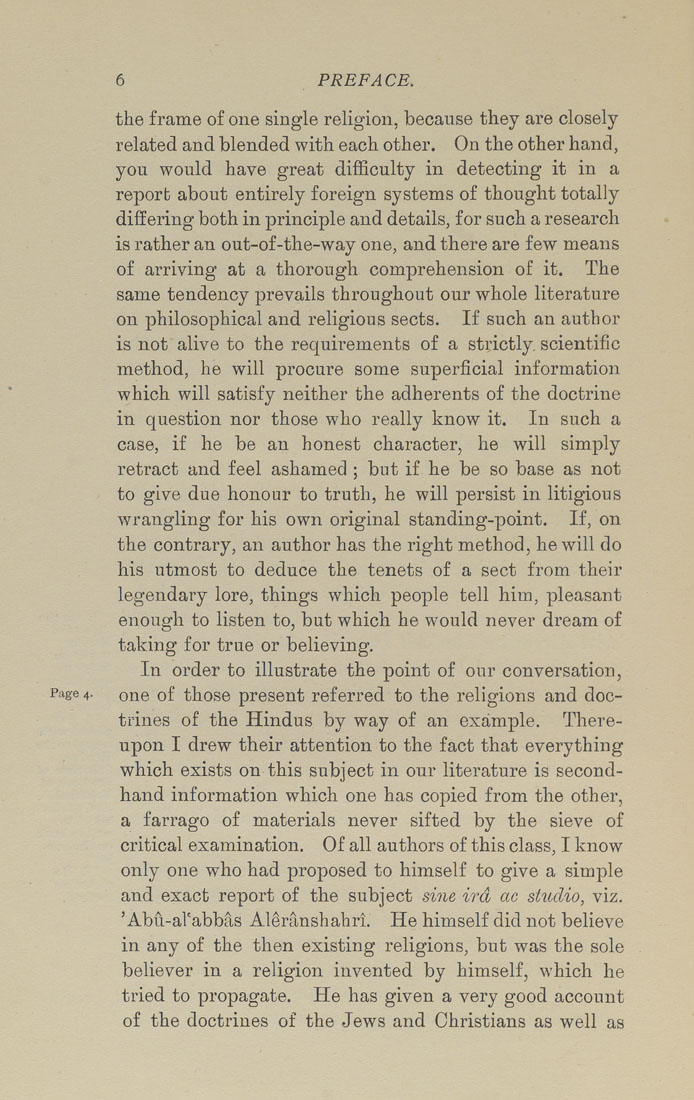Bīrūnī, Muḥammad ibn Aḥmad, Alberuni's India (v. 1)
(London : Kegan Paul, Trench, Trübner & Co., 1910.)
|
||
|
|
|
|
| Page 6 |

6 PREFACE. the frame of one single religion, because they are closely related and blended with each other. On the other hand, you would have great difficulty in detecting it in a report about entirely foreign systems of thought totally differing both in principle and details, for such a research is rather an out-of-the-way one, and there are few means of arriving at a thorough comprehension of it. The same tendency prevails throughout our whole literature on philosophical and religious sects. If such an author is not alive to the requirements of a strictly, scientific method, he will procure some superficial information which will satisfy neither the adherents of the doctrine in question nor those who really know it. In such a case, if he be an honest character, he will simply retract and feel ashamed ; but if he be so base as not to give due honour to truth, he will persist in litigious wrangling for his own original standing-point. If, on the contrary, an author has the right method, he will do his utmost to deduce the tenets of a sect from their legendary lore, things which people tell him, pleasant enough to listen to, but which he would never dream of taking for true or believing. In order to illustrate the point of our conversation. Page 4. one of those present referred to the religions and doc¬ trines of the Hindus by way of an example. There¬ upon I drew their attention to the fact that everything which exists on this subject in our literature is second¬ hand information which one has copied from the other, a farrago of materials never sifted by the sieve of critical examination. Of all authors of this class, I know only one who had proposed to himself to give a simple and exact report of the subject sine ird ac studio, viz. 'Abu-arabbas Aleranshahri. He himself did not believe in any of the then existing religions, but was the sole believer in a religion invented by himself, which he tried to propagate. He has given a very good account of the doctrines of the Jews and Christians as well as |
| Page 6 |







